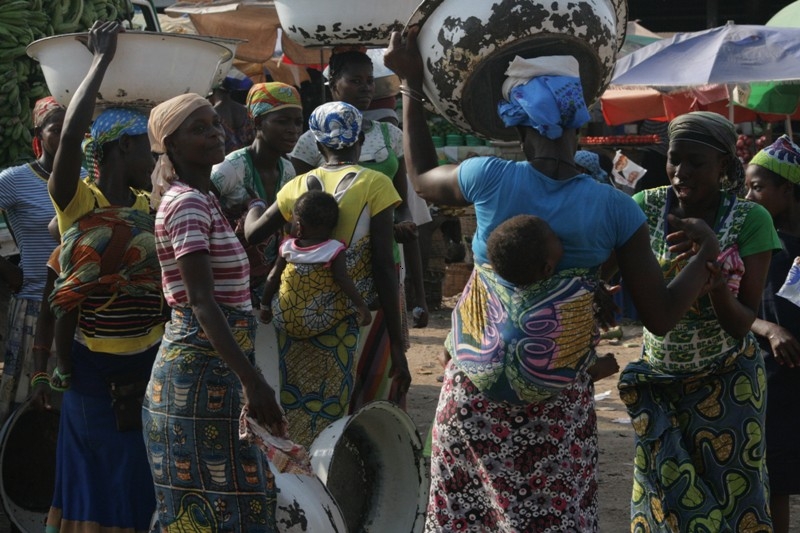Social Impact
our strategy
First Category:
- Low-skill workers with or without education.
- Pre-tertiary education qualification
- Majority of them shall be out-of-school adolescent youth, head porters, and women.
- Prior industrial apparel experience shall not be required since pre-hire training shall be provided
- Four months pre-hire training shall be provided to make prospective employees employable
Second Category:
- Tertiary educational qualification
Workers Incentives:
- NAMED shall focus on human rights which is critical to today’s apparel purchasers
- Livable wages, Overtime & Bonus Potential
- Free Meals
- Health Insurance
- Social Security and Income Tax Payments
- Transportation Allowance


kayaye in accra
Project Initiators
NAMED shall help improve the economic activities in the northern ecological zone, thus enhancing exports and job creation. The project shall among other things offer the following direct impacts:
- Create a minimum of 10,000 direct career apparel jobs for youth: out-of-school adolescents, as well as low-skilled workers with or without educational qualifications at the Tamale facility only.
- A direct career job shall guarantee a stable income.
- With guaranteed stable income, both the tax net as well as the social security fund shall be expanded
- With stable income, people can feed their families and increase the chances of getting access to education and healthcare.
- Decrease the incidence of young people migrating to the south to live, sleep and work on the street.
- Increase foreign exchange and transform the structure of the Ghanaian economy as more products are made and exported.
- Consequently, an opportunity to re-engineer the apparel and cotton industry in the northern belt
ESG and Compliance
There are numerous and material environmental, social, and governance (ESG) issues facing the global apparel industry including unfair labor practices, pollution, waste, and climate change. NAMED focuses on the following key sustainability strategies to drive impact in our business models.
- Implementing Sustainable Raw Material Sourcing: Spur innovation in new materials development and substitute more sustainable materials in products and packaging. The following remedial strategies are being actioned:
-
-
- Operational Efficiency: Optimizing corporate and supply chain efficiencies to lower cost and increase profits
- Innovation: Creating new revenue streams using sustainable business models
- Customer Loyalty: Attracting an increasing community of conscious buyers & consumers, while reducing retention costs
- Sales & Marketing: Increasing volume of sales through brand and marketing policies
- Risk Management: Encouraging risk mitigation and resilience within the value chain
- Stakeholder Engagement: Improving goodwill amongst the broader stakeholder community (i.e. NGOs)
- Supplier Relations: Improving upon the relationships between the company and its suppliers
-
- Employee and Supplier Well-being: Improve labor conditions in the supply chain and within the corporate workforce through practices that directly and indirectly benefit the health and safety of the workforce. The following remedial strategies are being actioned:
-
-
- Employee Relations: Improve employee workplace culture and retain talent
- Operational Efficiency: Optimize corporate and supply chain efficiencies to lower cost and increase profits
- Risk Management: Encourage risk mitigation and resilience within the value chain
- Supplier Relations: Improve upon the relationships between the company and its suppliers
- Stakeholder Engagement: Improve goodwill amongst the broader stakeholder community (i.e. NGOs)
-
3. Energy Management: focuses on practices to decrease greenhouse gas emissions by focusing on improving energy efficiency, changing distributions modes, and increasing the use of renewable energy. Our Tamale facility is designed to use 50% solar energy.
4. Circularity & Innovation: NAMED invest in innovation to achieve new circular business models which focus on product takeback and innovative design methods
5. Reducing Material Waste: NAMED implements practices to mitigate waste in areas such as fabric, consumer clothing, peripherals, and packaging.
6. Sustainable Brand Marketing & Communications: NAMED invests in marketing and education around sustainability through engagement campaigns and branding
